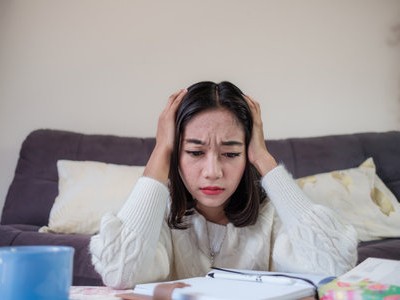
Is Depression A Mental Disorder Psychologist Ashmore (07) 5539 9798
Isabella Whittingham Registered Psychologist Ashmore

Introduction: Anxiety And Depression Help Psychologist Ashmore Near Me
In today's hectic and demanding world, mental health issues have actually become significantly common. 2 of the most common mental health disorders are anxiety and depression. While they might share some resemblances, it is essential to understand the distinctions between the two conditions in order to seek proper treatment and assistance. This article aims to offer an extensive understanding of anxiety and anxiety, their symptoms, causes, and available treatments.
Anxiety vs. Anxiety: Understanding the Differences and Similarities
What is Anxiety?
Anxiety is a typical human feeling that everybody Men With Depression Psychologist Ashmore Near Me experiences from time to time. It is defined by sensations of concern, fear, or unease. However, when these feelings end up being excessive or relentless, it may indicate a stress and anxiety disorder.
Symptoms of Anxiety
- Excessive worrying
- Restlessness
- Trouble concentrating
- Irritability
- Muscle tension
- Sleep disturbances
Causes of Anxiety
Anxiety can be brought on by a combination of hereditary, environmental, and psychological elements. Traumatic life events, chronic tension, or a family history of anxiety disorders can increase the threat of developing a stress and anxiety disorder.
What is Depression?
Depression is a mood disorder that impacts how a person believes, feels, and behaves. It surpasses regular sensations of sadness or sorrow and can substantially affect everyday performance and quality of life.
Symptoms of Depression
- Persistent sadness or emptiness
- Loss of interest or pleasure in activities
- Fatigue or low energy levels
- Changes in hunger or weight
- Difficulty sleeping or oversleeping
- Feelings of worthlessness or guilt
Causes of Depression
Depression is a complex condition with several contributing factors. It can be brought on by genetic predisposition, biochemical imbalances in the brain, hormonal modifications, certain medical conditions, or distressing life events.
Similarities Between Anxiety and Depression
While stress and anxiety and anxiety stand out disorders, they often exist side-by-side and share some typical symptoms. Both conditions can trigger feelings of uneasyness, irritation, trouble focusing, and sleep disturbances. In addition, people with stress and anxiety or depression may experience physical symptoms such as headaches, digestion issues, or chronic pain.
Differences Between Stress and anxiety and Depression
Emotional Symptoms
Anxiety is mainly defined by extreme concern and fear, while anxiety is marked by persistent unhappiness and loss of interest in activities. People with anxiety might feel on edge or continuously on guard, whereas those with anxiety may experience a sense of hopelessness or emptiness.
Physical Symptoms
While both anxiety and anxiety can manifest physically, the specific symptoms vary. Anxiety frequently presents with signs such as muscle tension, racing heart, shortness of breath, and shivering. In contrast, anxiety might cause low energy levels, changes in cravings or weight, and sleep disturbances.
Thought Patterns
Anxiety tends to be associated with excessive rumination and overthinking. People with stress and anxiety often have racing thoughts and may have a hard time to control their worries. On the other hand, depression is defined by negative thought patterns such as self-criticism, sensations of insignificance, and a cynical outlook on life.
Impact on Daily Functioning
Both stress and anxiety and depression can substantially impact everyday functioning; nevertheless, they do so in various methods. Stress and anxiety can cause avoidance habits or problem focusing on jobs due to excessive concern. Depression often results in decreased inspiration, loss of interest in previously enjoyed activities, and difficulties with decision-making.
FAQs about Stress And Anxiety vs. Depression
Q: Is stress and anxiety a symptom of depression? A: While anxiety can be a symptom of anxiety for some people, it is not always the case. Stress and anxiety conditions and depression stand out mental health conditions that can exist together but also take place independently.
Q: Can you have both anxiety and depression at the very same time? A: Yes, it is possible to have both stress and anxiety and depression simultaneously. This is called comorbidity, and it is relatively common for people with psychological health disorders.
Q: Is anxiety or depression more common? A: Stress and anxiety conditions are a little more common than depression, but both conditions are amongst the most typical mental health disorders worldwide.
Q: Can anxiety develop into depression? A: While stress and anxiety can add to the advancement of depression in many cases, it does not always lead to depression. Nevertheless, chronic and unattended stress and anxiety can increase the threat of establishing depressive symptoms.
Q: Exist reliable treatments for stress and anxiety and depression? A: Yes, there are a number of evidence-based treatments available for anxiety and depression. These may include therapy (such as cognitive-behavioral therapy), medication, lifestyle modifications, and self-help strategies.
Q: The length of time does stress and anxiety or depression last? A: The period of stress and anxiety or anxiety can vary widely depending on specific factors such as treatment adherence, support group, and underlying causes. Some individuals may experience acute episodes that deal with within a few weeks or months, while others might have persistent conditions that need ongoing management.
Depression Anxiety Quotes Psychologist Ashmore
Anxiety Helpline Psychologist Ashmore Near Me
Isabella Whittingham Registered Psychologist Gold Coast
Surfers Paradise Chiropractic Centre-Dr. Bruce Whittingham
12 Thomas Drive, Surfers Paradise QLD 4217
(07) 5539 9798
https://surfersparadisechiropractic.com.au
Depression And Anxiety Statistics Psychologist Ashmore Near Me